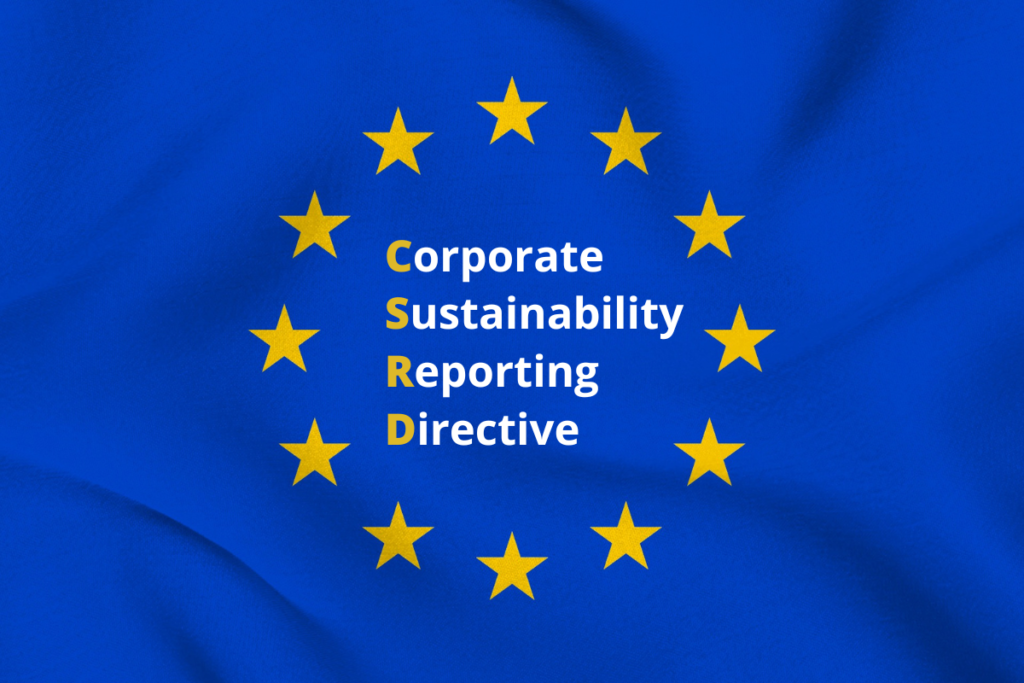
In lieu with the commitment made under the European Green Deal, and as an amendment to the already existing Non-Financial Reporting Directive (NFRD), the Corporate Sustainability Reporting Directive (CSRD) is an EU regulation mandating that businesses in the EU, including eligible EU subsidiaries of non-EU companies that generate over EUR 150 million in the EU market. This alteration in the scope and the requirements in companies’ non financial disclosure came into effect on January 5, 2023. It requires these businesses to report on how their environmental, social, and governance (ESG) initiatives influence their operations.
In very simple terms, the primary purpose of these new regulations is to provide investors and other stakeholders with the necessary information to evaluate the impact of companies on people and the environment, as well as to assess financial risks and opportunities related to climate change and other sustainability issues. Over time, harmonizing the required information is expected to reduce reporting costs for companies.
Starting in the 2024 financial year, with reports published in 2025, companies must comply with the new rules. Reporting must be in accordance with the European Sustainability Reporting Standards (ESRS), developed in draft form by EFRAG (previously the European Financial Reporting Advisory Group), an independent organization that includes various stakeholders.
While the NFRD currently applies to approximately 11,700 companies and groups across the EU, the CSRD is expected to increase this number to about 49,000. This expansion aligns with the EU’s broader goals of achieving carbon neutrality by 2050 and supports other regulatory frameworks like the Sustainable Finance Disclosure Regulation (SFDR) and the EU Taxonomy.
The CSRD applies to a broad range of companies that meet two of the following three criteria: €50 million in net turnover, €25 million in assets, or 250 or more employees. This encompasses large, listed corporations, banks, and insurance companies already subject to the NFRD, other listed EU companies previously not subject to the NFRD, listed European SMEs (which can report using simplified standards), and large private European companies. In addition to the above-mentioned, non-European companies with significant business in the EU, specifically those with an annual turnover above €150 million in the EU, will need to comply, as well.
The CSRD introduces new requirements for companies operating in the EU to report on their sustainability performance. Under the concept of Double Materiality, companies must disclose impacts in both directions, including Sustainability Risks, which detail how environmental and social issues like climate change or labor practices affect the business, and Sustainability Impacts, which describe how the company’s activities affect the environment and society, such as through pollution or community development. Companies must report on Strategic Integration, covering how sustainability factors are incorporated into their business model and strategy, risk management processes, and management and supervisory roles. Companies must also disclose their Performance on Sustainability Goals, including their sustainability targets, the policies in place to address sustainability issues, and the outcomes and performance against those targets.
The CSRD also mandates that sustainability data be submitted in a standardized digital format, facilitating easier comparison between companies and enhancing transparency.
| Phase | Start Date | Impacted Entities | Reporting Requirements |
| Phase 1 | January 1, 2024 | Large companies with over 500 employees already subject to the NFRD | Start reporting according to CSRD guidelines for fiscal year 2024, with the first report published in 2025 |
| Phase 2 | January 1, 2025 | Large companies meeting at least two out of three specified requirements, which were not previously subject to the NFRD: – More than 250 employees – Net turnover exceeding €50 million – Total assets exceeding €25 million | Begin reporting under CSRD for financial years starting on or after January 1, 2025. First report due in 2026, covering the 2025 financial year |
| Phase 3 | January 1, 2026 | – Listed small and medium-sized enterprises (SMEs) – Non-EU companies with a subsidiary or branch in the EU exceeding specific thresholds (details on these thresholds are still under development) | Begin CSRD reporting for financial years starting on or after January 1, 2026. First report due in 2027, covering the 2026 financial year |
The CSRD introduces stricter reporting principles and a standardized format to enhance transparency and comparability.
Integration with Financial Reporting:
Mandatory Assurance (Limited for now):
‘Limited assurance’ refers to the auditor providing a moderate level of assurance on the sustainability information. This involves conducting limited procedures to evaluate the risk of material misstatements in the report. While not as comprehensive as a full audit, it still improves the credibility of the reported information.
The CSRD represents an important step forward for sustainability reporting in the EU. By mandating stricter reporting principles, a standardized format, and a path towards increased assurance, the directive aims to create a more transparent and accountable business environment.
The time to act is now. Don’t wait until your reporting deadline approaches. Begin familiarizing yourself with the CSRD requirements, establish data collection processes, and consider seeking expert guidance. By taking a proactive approach, you can ensure a smooth transition and potentially gain a competitive edge in a sustainability-conscious marketplace.
Looking ahead, the CSRD paves the way for a future where sustainability reporting becomes a standard practice for companies of all sizes. We can expect the regulatory landscape to continue evolving, with potentially more stringent requirements and a global shift towards standardized sustainability reporting frameworks. Companies that prioritize sustainability and build strong reporting practices today will be well-positioned to navigate this evolving landscape and thrive in a world that increasingly values responsible business practices.
The complexities of the CSRD might necessitate seeking professional help. Technology can be your ally. You can leverage technology such as sustainability reporting software to streamline data collection, analysis, and reporting. Book a demo to help automate data collection from various sources, facilitate data visualization, and generate draft reports according to CSRD guidelines.
Develop a comprehensive strategy that aligns sustainability goals with your overall business objectives.